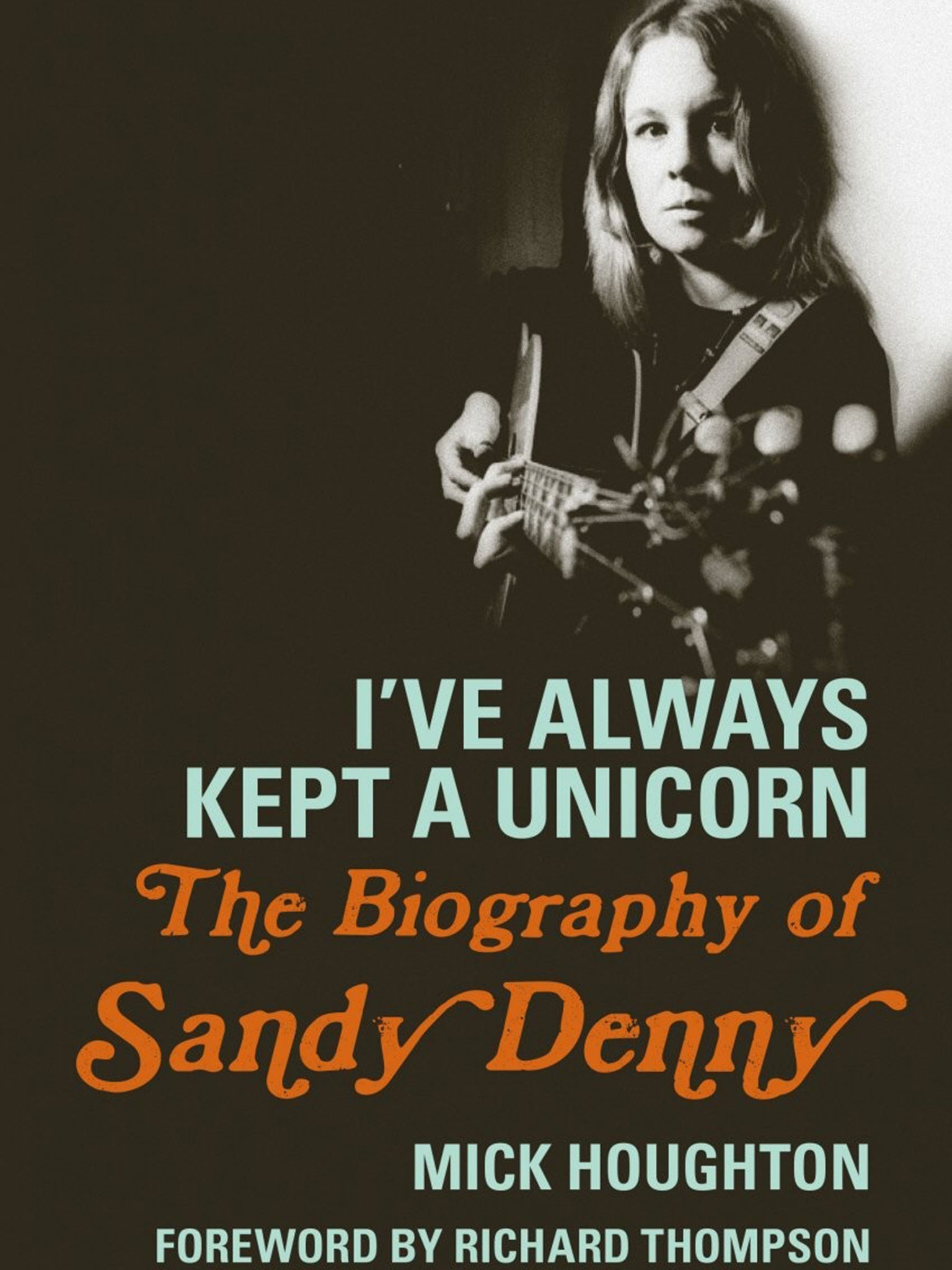I've always kept a Unicorn: The Biography of Sandy Denny by Mick Houghton, book review: The First Lady of folk has a hooligan trapped inside
A revealing portrait of a close-knit and mutually supportive scene in which musicians lived together

Your support helps us to tell the story
From reproductive rights to climate change to Big Tech, The Independent is on the ground when the story is developing. Whether it's investigating the financials of Elon Musk's pro-Trump PAC or producing our latest documentary, 'The A Word', which shines a light on the American women fighting for reproductive rights, we know how important it is to parse out the facts from the messaging.
At such a critical moment in US history, we need reporters on the ground. Your donation allows us to keep sending journalists to speak to both sides of the story.
The Independent is trusted by Americans across the entire political spectrum. And unlike many other quality news outlets, we choose not to lock Americans out of our reporting and analysis with paywalls. We believe quality journalism should be available to everyone, paid for by those who can afford it.
Your support makes all the difference.As tragic heroines go, Sandy Denny, the first lady of folk rock who rose to fame in the late Sixties as the singer in Fairport Convention, was an unlikely contender.
Best known for “Who Knows Where The Time Goes?” and, latterly, the inspiration for a new generation of heart-on-sleeve singers such as Laura Marling, Cat Power, and Joanna Newsom, Denny grew up in a nice house, in a nice street, with nice parents who supported her choice of career, unorthodox as it must have seemed.
Certainly, aside from a brief stint as a nurse, Denny endured little hardship before finding success. But despite her sociable nature and obvious charisma, she was dogged by an insecurity that increased as her celebrity grew, and, by the mid-Seventies, was fuelled by heavy drinking and cocaine use. She died at the age of 31 from a brain haemorrhage shortly after falling down a flight of stairs.
Mick Houghton’s scrupulously researched biography draws a detailed picture both of Denny’s increasingly complex mental state and of the London folk scene in the Sixties and Seventies, which also included now towering figures such as Richard Thompson, Bert Jansch, and Paul Simon.
If there are times, in chronicling Denny’s early career, when Houghton gets bogged down in detail (do we really need to know how far Sandy stood from the microphone during studio sessions?), he nonetheless offers a revealing portrait of a close-knit and mutually supportive scene in which musicians lived together, played together and sometimes made babies together.
If lovers were shared, it was rarely a cause of conflict. It’s with typical wit that the folk singer Linda Thompson, who had a fling with the Australian folkie Trevor Lucas before he settled down with Denny, reveals: “It was just the Sixties and back then it seemed churlish not to sleep with someone if they gave you a light for your cigarette.”
As well as drawing on archive interviews and Denny’s private and previously unseen notebooks, Houghton has assembled an impressive roll call of interviewees in a work that is part oral history, part critical reflection.
The writer’s own folk connections, a result of 30 or so years working as a publicist for some of the scene’s biggest names, has proved a boon, allowing him an audience with the likes of Ralph McTell, Judy Collins, John Martyn, Linda Thompson, and Martin Carthy.
Carthy’s remark that “there was a hooligan busting to get out in Sandy” is particularly apt here. The obscure trad folk adhered to by Denny’s purist contemporaries proved constricting for an artist looking to be more than an interpreter of other people’s songs.
Later it was fame, followed by marriage and motherhood (in 1977, she gave birth to her only child, Georgia), that would prove suffocating.
Thus, in her final year, the wrathful hooligan emerged. As this authoritative and comprehensive biography underlines, it was Denny’s combination of restlessness, ambition and self-doubt that was ultimately her undoing.
Join our commenting forum
Join thought-provoking conversations, follow other Independent readers and see their replies
Comments